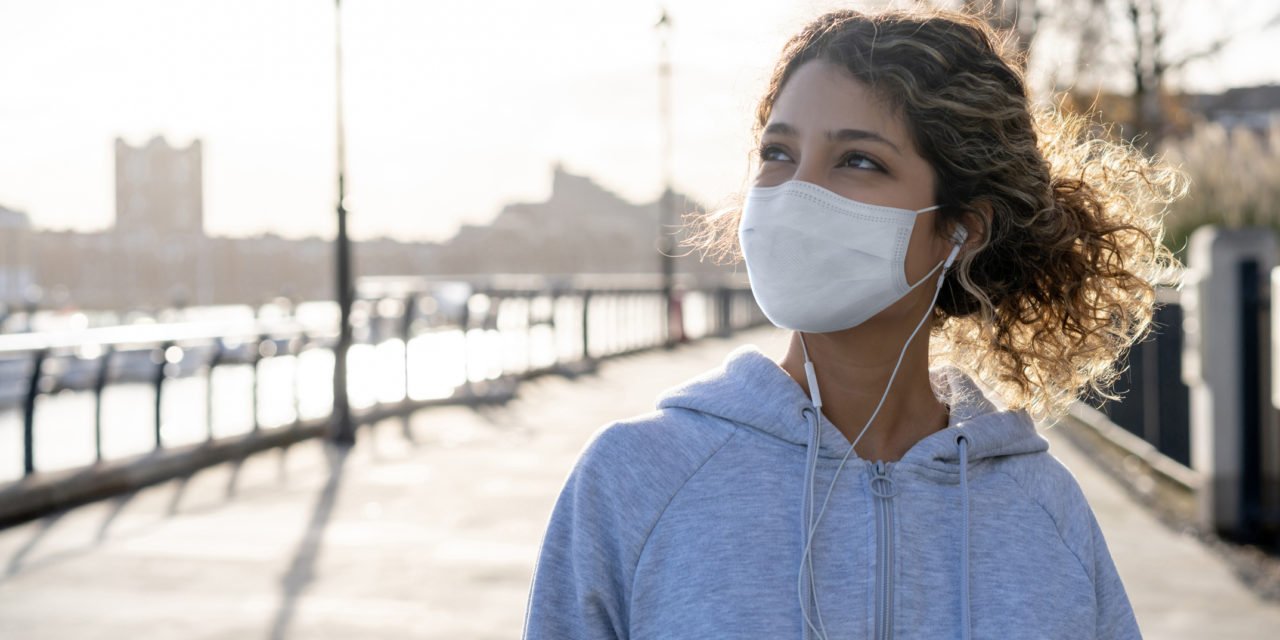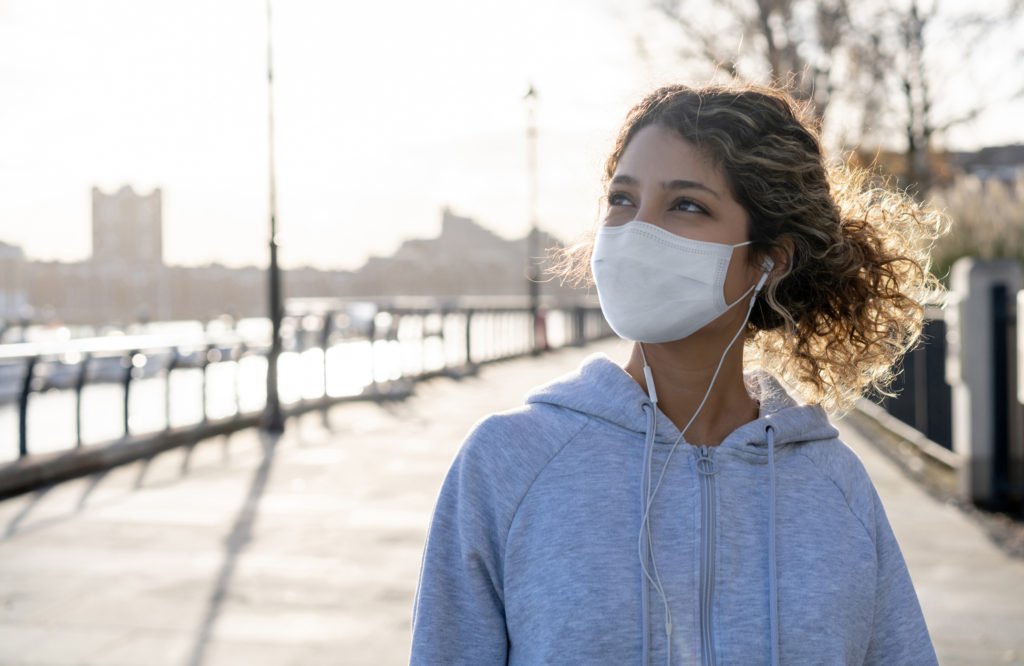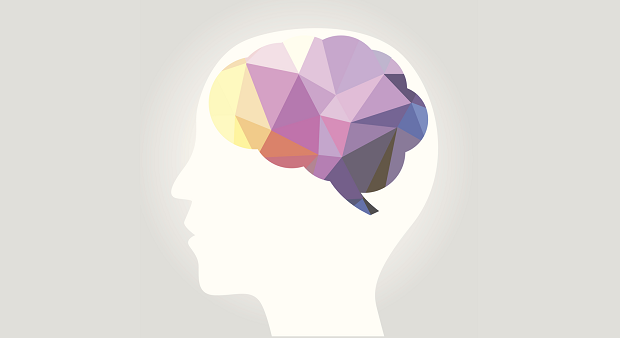After being one of the millions of people laid-off during the COVID-19 pandemic[1], I am relieved and excited to finally have a full-time job. It was quite a journey to get here: submitting countless job applications (easily over 100, maybe over 200), having over 30 interviews, and receiving dozens of rejection emails… all while battling depression, anxiety, grief, and the collective trauma of COVID-19, white supremacy, gender violence, and the climate crisis.
I want to recognize that women of color have borne the brunt of this pandemic, as many have been laid-off at higher rates, been front-line workers, and/or have had to juggle a full-time career with being a full-time caregiver. Click To TweetI want to recognize and acknowledge that women, specifically women of color, have borne the brunt of this pandemic, as many have been laid-off at higher rates, been front-line workers, and/or have had to juggle their full-time career with being a full-time caregiver and quite possibly a full-time teacher for their children[2]. It’s been a difficult year and a half for many of us, and we’re all trying our best to simply survive. Some days feel heavier and other days feel lighter, but I hope that both have caused us to pause and reflect on how we can do our part to care for ourselves and for those around us. As I’ve had time (maybe too much time) to reflect on all these things, this is what I’ve come to realize:
1.) We are not machines; capitalism, the hustle and grind culture, the results-oriented nature of our work, “the badge of honor” some wear when they work overtime make us feel as if we are only what we produce. This is white supremacy culture[3] in action; it’s toxic and has contributed to the great resignation that we have been seeing for months as employees leave their jobs in search of something healthier and more life-giving[4]. People are desperate for a new approach to work that emphasizes their humanity.
We are not machines; capitalism, the hustle and grind culture, the results-oriented nature of our work, 'the badge of honor' some wear when they work overtime make us feel as if we are only what we produce. Click To Tweet2.) Burn-out and trauma are real and can live in our bodies, affecting us emotionally and mentally, but also physically[5]. It’s important that we take the time and space to care for ourselves and tend to the parts of ourselves that require healing. This ability should be available to everyone, but because systems have been set up to benefit some but not others, it’s not always possible. Therefore, we must advocate for living wages, paid time-off, more affordable and accessible mental health resources; and incorporate trauma-informed practices at our workplaces.
It’s important that we take the time and space to tend to the parts of ourselves that require healing. But our systems have been set up to benefit some and not others, so this is not always possible. Click To Tweet3.) Whatever doesn’t serve you, let it go. I think many of us, especially those of us who care about intersectional justice, have quickly realized who our community is in the last year. Being in an interracial marriage, my partner and I have had to re-evaluate who we spend time with and who is safe (emotionally, mentally, and physically) for us to be around. It’s not worth my energy, or my partner’s emotional labor, to educate those who are unwilling to open themselves up to learning from other perspectives. This has led me to implement boundaries in some of my relationships, which has caused them to shift and change. I grieve these relationships; no one tells you how difficult it can be to let a friendship go. But more than that, I grieve the fact that folks are reluctant to do the work so that others can get free. Don’t get me wrong, I’m all for having friendships and building relationships with those who have different opinions, but I will not argue with you about whether Black Lives Matter.
It’s not worth the energy or emotional labor to educate those unwilling to open themselves up to learning from other perspectives. This has led me to implement boundaries in some relationships, causing them to change. Click To Tweet4.) Surround yourself with those who encourage you and advocate with you in the pursuit of justice, and who believe in and empower you in the gifts you bring to the world. I’m thankful for the friends and family who are dedicated to educating themselves on issues of justice, and who make space for my partner and I to bring our full authentic selves to a space. The work of justice cannot be done in silos, but instead must be done together; our well-being and liberation depend on one another. As Aboriginal rights activists say, “If you have come here to help me you are wasting your time, but if you have come because your liberation is bound up with mine, then let us work together” (often attributed to Lilla Watson).
The work of justice cannot be done in silos, but instead must be done together; our well-being and liberation depend on one another. Click To Tweet5.) Listen to, learn from, amplify, and center the voices and work of Black women. That’s it. That’s the tweet. Much of what I’ve learned in this last year is from the work of Black women: Layla F. Saad, Ijeoma Oluo, Rachel Cargle, Austin Channing Brown, Dr. Janice Gassam Asare, Mary-Frances Winters, Mikki Kendall, Patrisse Cullors, Alicia Garza, Opal Tometi, Danielle Coke, Rachel Ricketts, Lisa Sharon Harper, Rev. Dr. Brenda Salter McNeil, Osheta Moore…as well as Black men: Jemar Tisby, Ta-Nehisi Coates, Resmaa Menekem, and Ibram Kendi. Read their work. It’s challenged me and shaped my life, perspective, and who/what I give my time to.
Listen to, learn from, amplify, and center the voices and work of Black women. That’s it. That’s the tweet. Click To TweetThere is so much more I could say about this last year and a half, but these are the reminders I take with me wherever I go that empower me to do the work of unlearning and re-learning, advocating, and resting. Wherever we find ourselves, I hope that we can continue to re-write a different narrative, to re-imagine a different way to work and to live that challenges the status quo and paves the way for the liberation of all.
[1] https://www.wsj.com/articles/how-many-u-s-workers-have-lost-jobs-during-coronavirus-pandemic-there-are-several-ways-to-count-11591176601
[2] https://swhr.org/the-disproportionate-impact-of-covid-19-on-women-of-color/
[3] https://www.dismantlingracism.org/uploads/4/3/5/7/43579015/okun_-_white_sup_culture.pdf
[4] https://www.theatlantic.com/ideas/archive/2021/10/great-resignation-accelerating/620382/
[5] https://brenebrown.com/podcast/brene-with-emily-and-amelia-nagoski-on-burnout-and-how-to-complete-the-stress-cycle/; https://www.kqed.org/podcasts/602/it-is-not-in-your-head




















